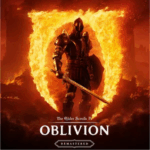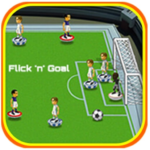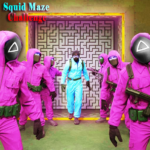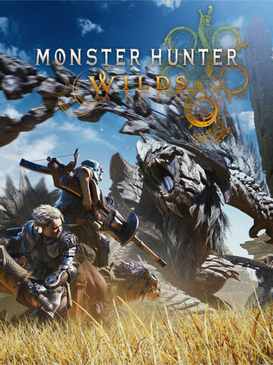League of Legends (LoL) is one of the most influential online games in history. Developed by Riot Games and launched in 2009, this free-to-play MOBA (Multiplayer Online Battle Arena) quickly rose to global prominence thanks to its deep strategic gameplay, diverse champions, and massive esports presence. Over a decade later, League of Legends continues to dominate the gaming landscape.
In this article, we’ll explore the full scope of League of Legends, from its humble beginnings to its role as a global esports and pop culture icon.
1. Origins and Evolution of League of Legends
From Mod to Masterpiece
League of Legends was inspired by a popular Warcraft III mod called Defense of the Ancients (DotA). Riot Games sought to create a standalone, free-to-play version that improved accessibility and offered regular content updates.
LoL officially launched in October 2009 and featured:
-
40 champions
-
One primary game mode (Summoner’s Rift)
-
A community-focused approach
It rapidly gained traction due to its low system requirements and fast-paced matches.
The Growth Years
Over time, Riot introduced:
-
New maps (Twisted Treeline, Howling Abyss)
-
Hundreds of champions
-
Ranked matchmaking
-
A dedicated esports ecosystem
League evolved from a niche title to a cultural force.
2. Core Gameplay: Strategy Meets Action
Basic Structure
LoL matches feature:
-
Two teams of five players
-
Three lanes (top, mid, bottom)
-
Jungle areas with neutral monsters
-
Towers, inhibitors, and a Nexus to destroy
Players choose a champion with unique abilities and play styles.
Win Conditions
Victory is achieved by:
-
Outplaying opponents in lane
-
Coordinating teamfights
-
Controlling objectives (dragons, Baron Nashor)
-
Pushing lanes and destroying the enemy Nexus
The game blends tactical decision-making with mechanical skill.
3. Champions and Roles
Champion Diversity
League has over 160 champions, each fitting into specific roles:
-
Top Lane: Bruisers, tanks, duelists
-
Jungle: Gankers, objective control
-
Mid Lane: Mages, assassins
-
ADC (Bot Lane): Marksmen
-
Support: Enchanters, tanks, utility champions
Each champion has:
-
Passive ability
-
Three basic skills
-
One ultimate ability
Learning Curve
Mastery requires:
-
Understanding champion matchups
-
Timing abilities and combos
-
Map awareness and macro knowledge
-
Adaptive itemization
Champion selection and counterpicking are essential for competitive success.
4. Game Modes and Maps
Main Modes
-
Summoner’s Rift (5v5): Core competitive experience
-
ARAM (All Random All Mid): Fast, chaotic 5v5 on a single lane
-
Custom Games: Community modes and tournaments
Past modes include URF, Nexus Blitz, One for All—designed for variety and fun.
Rotating Game Modes
Occasional limited-time modes provide refreshing breaks from ranked grind and offer themed experiences.
5. Ranked System and Progression
Competitive Tiers
League’s ranked ladder consists of:
-
Iron
-
Bronze
-
Silver
-
Gold
-
Platinum
-
Diamond
-
Master
-
Grandmaster
-
Challenger
Rank is determined by Matchmaking Rating (MMR) and LP earned through wins.
Climbing the Ladder
Success in ranked demands:
-
Consistency in performance
-
Positive teamwork and communication
-
Role specialization and game knowledge
-
Adaptation to the evolving meta
Ranked mode is where players sharpen their skills and chase prestige.
6. Esports and Global Tournaments
A Global Competitive Scene
League of Legends is home to the world’s largest esports ecosystem:
-
Regional Leagues: LCK (Korea), LPL (China), LEC (Europe), LCS (North America), VCS (Vietnam), PCS, CBLOL, and more
-
International Events: MSI and World Championship (Worlds)
Top teams compete for millions in prize money and global recognition.
Worlds: The Crown Jewel
Every fall, Worlds crowns the best team in the world. It features:
-
Group stages and knockout rounds
-
Incredible production, music, and ceremonies
-
Viewership in the hundreds of millions
Teams like T1, DWG, EDG, and JDG have made history on this stage.
7. Skins, Cosmetics, and Monetization
Cosmetic-Only Model
LoL’s free-to-play model is sustained through:
-
Champion skins (standard, legendary, ultimate)
-
Chromas (color variants)
-
Ward skins, emotes, icons
-
Prestige Editions and Event Passes
No pay-to-win mechanics exist in League.
Collaborations and Themes
Riot has introduced:
-
Thematic skin lines (Project, Star Guardian, Spirit Blossom)
-
Real-world collabs (Louis Vuitton, K/DA, True Damage)
-
Music, comics, and cinematic universe
These deepen the game’s identity and attract fans beyond gameplay.
8. Riot Games Ecosystem and Spin-Offs
Riot Expands the Universe
League of Legends now anchors a broader Riot ecosystem:
-
Legends of Runeterra: Card game based on League’s lore
-
Teamfight Tactics (TFT): Auto-battler strategy game
-
Wild Rift: Mobile version of League
-
Arcane: Netflix animated series
-
Books, music, and merchandise
Runeterra has become a multimedia world with cross-game storytelling.
Impact of Arcane
Arcane, released in 2021, received critical acclaim and:
-
Won multiple Emmy awards
-
Attracted non-gamers to League
-
Boosted champions like Jinx, Vi, and Jayce
It redefined how games can expand their storytelling potential.
9. Pros and Cons of League of Legends
Pros
-
Deep strategic and mechanical gameplay
-
Massive champion pool with varied styles
-
Largest competitive esports infrastructure
-
Frequent balance patches and content updates
-
Free-to-play and globally accessible
Cons
-
Toxicity in solo queue and chat
-
Steep learning curve for beginners
-
Time commitment for ranked grinding
-
In-game meta shifts can be harsh
-
Champion mastery takes significant dedication
10. Final Verdict and Expert Rating
League of Legends stands as one of the most impactful video games of all time. From casual matches with friends to world-stage tournaments, LoL offers depth, excitement, and longevity like few other titles. Riot’s continued investment in lore, competitive integrity, and community tools keeps the game relevant and expanding.
Whether you’re in it for ranked glory, lore-rich experiences, or just the love of outplaying your lane opponent, League of Legends offers unmatched competitive value.
Final Expert Rating: 9.6/10
-
Gameplay Mechanics: 9.5
-
Esports and Competition: 10.0
-
Visuals and Lore: 9.4
-
Community Engagement: 9.2
-
Accessibility and Growth: 9.0
Conclusion: League of Legends Is More Than Just a Game
League of Legends has built a legacy that spans across platforms, media, and generations of players. It’s a test of skill, strategy, and teamwork—and a universe teeming with life, conflict, and imagination.
Whether you're aiming to climb to Challenger, binge Arcane, or master a single champion, League offers a lifetime of discovery. It's not just a game—it's a competitive playground, a digital community, and a living legend in the world of gaming.






























